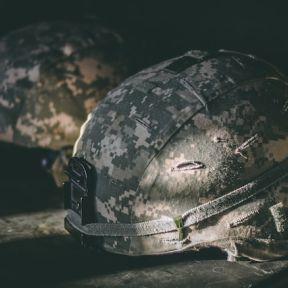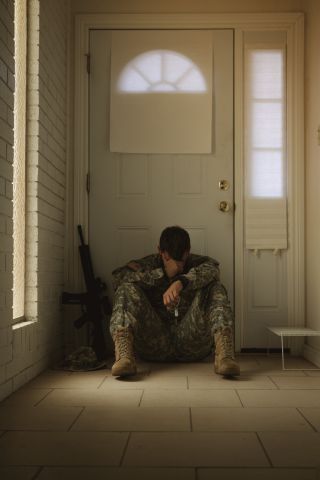OCD- The Stigma of Seeking Help: How the Military Mirrors Society. The stigma of mental health issues is prevalent in the military and society. Reviewed by Ray Parker

KEY POINTS-
- The military is a microcosm that highlights elements that also affect society at large.
- There is a stigma in the military community around seeking help for mental health issues.
- Here are 3 blocks: the stigma of seeking help, prioritization of the mission, and mental health advocacy.
Is there a social stigma regarding seeking help for mental health challenges, such as obsessive-compulsive disorder (OCD)?
If there is, how do military veterans (both in and out of uniform) navigate the land mines among the cultural expectations of strength and confidence and the distress of living with a mental illness? How can storytelling help promote healing in veterans and active-duty military with OCD? Can psychoeducation more effectively combat stigma?

Introduction
The military community—defined as those serving on active duty and those who are no longer in uniform but have served in the armed forces—is comparatively small and tight in comparison to the society it continues to serve (Culkin, 2023; McIngvale et al., 2019).
Members of this community often experience trauma that can exacerbate existing cognitive and/or mental health disorders. Discussing OCD in the military community parallels the experiences that many military community members with other disorders face on a daily basis, sometimes for years.
In this article, we’ll examine three elements of living with mental health issues in the military community: the stigma of seeking out help, prioritization of the mission over self-care, and mental health advocacy.
The stigma of seeking help
There is an unspoken line of reasoning in the ranks that implies, “If you can’t take care of yourself, how can you care for those whom you lead?” Like most theories, there is a grain of truth here. Leaders do need to take time and resources to develop themselves and care for their own needs. If they don’t, their people, or family and friends, or both, may suffer. This premise has held strong for generations, during times of peace and conflict. Likewise, it has fallen short of the needs of many in the military. Perhaps it’s time for a positive twist to this thinking: “If you can take care of yourself, how can you not care for those whom you lead?”
Mission first
One only has to type in hashtags, #MentalHealth and #Military, to see hundreds of social media posts by military community members denouncing the quality of mental health care they can access, largely due to organizational culture and structural obstacles (Culkin, 2023). By necessity, the military has evolved over history to prioritize service to community defense.
This prioritization often translates into individual members placing the needs of others—i.e., the community, their unit, and their subordinates—before their own. As a result, seeking help for something so personal as mental health challenges can be seen as a weakness, a potential threat to the “greater” mission.
Recently, with the rates of depression and suicide among service members and veterans on the rise, leaders have recognized the direct connection between the mental health care of individuals and overall readiness for the mission (Holstein, 2017; Nichels, 2017).
Mental health advocacy
Advocacy begins with an awareness within the military community that the quality of mental health care needs to improve. Such need emerges from the nexus of mental health awareness, psychoeducation that targets stigma, and mission readiness (Culkin, 2023). When soldiers don’t ask for help because they feel their supervisors won’t let them off work, that’s a problem.
Likewise, if factory workers cannot get leave to see therapists, their families can suffer. Talking about personal problems with colleagues and friends can assuage fears, but sometimes people need to talk to experienced health professionals to listen to their stories and address their needs (Culkin & Culkin, 2021). Luckily, people now have access to public resources, such as the National Suicide and Crisis Lifeline at 988 and the Women Veterans Hotline at 855-829-6636.
Conclusion
While the military, and society in general, has made strides in the development of mental health care, there remain key areas of concern. The military is a microcosm that highlights three elements that also affect society at large: the stigma of seeking help, prioritization of the mission over self-care, and mental health advocacy.
- Questions and Answers
- Opinion
- Motivational and Inspiring Story
- Technology
- Live and Let live
- Focus
- Geopolitics
- Military-Arms/Equipment
- Безопасность
- Economy
- Beasts of Nations
- Machine Tools-The “Mother Industry”
- Art
- Causes
- Crafts
- Dance
- Drinks
- Film/Movie
- Fitness
- Food
- Игры
- Gardening
- Health
- Главная
- Literature
- Music
- Networking
- Другое
- Party
- Religion
- Shopping
- Sports
- Theater
- Health and Wellness
- News
- Culture

